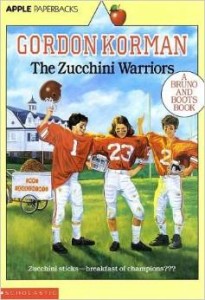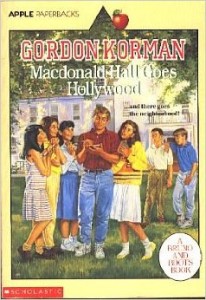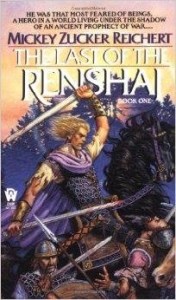 A guest post by Gama Martinez.
A guest post by Gama Martinez.
Many years ago, when I thirteen or so, I was in a Walden Books. I decided I wanted to start reading big thick books. I also knew that I liked books about wizards. With no other criteria in mind, I went to the fantasy section and used my allowance to pick up two books. The first was Wizard’s First Rule, which you may have heard of. The second was The Western Wizard by Mickey Zucker Reichert, which you probably haven’t. The Western Wizard was about Colby, a swordsman who survived the destruction of his people, the Renashai, a tribe of warriors whose skill with the sword was unmatched. Even among them, Colby was the best. He finds himself at the center of plots by wizards, kings, and gods. Even though parts of the book didn’t make sense to me, I really enjoyed it. Eventually I realized that it didn’t make sense because it was actually the second book in the Renshai Trilogy which, as far as I can tell, I’m the only one to have read ever.
The first book in the series, The Last Renshai, starts off with the destruction of the Renshai. One boy, Rache, survives the destruction of his people and eventually finds a home in the house of a city lord. Impressed by his skill, even as a boy, the lord promises him a position as a soldier when he gets older. He begins to build a life for himself, eventually becoming a soldier and later the captain, though he never reveals his origins. The Renshai were universally feared and hated even to the point that the word “Renshai” was a foul curse, and in some places, it was a serious crime to speak it. Due to his beliefe that everyone should be able to defend themselves, he begins to teach the city lord’s daughter how to use a sword, but he teaches her the Renshai style. By Renshai tradition, it is not blood that makes one a Renshai, but training. Meanwhile, the world is heading for a great war prophesied in the distant past. Rache begins to hear rumors of another survivor of his people while the four wizards who are the stewards of the world worry about the ever looming Ragnarok.
Now, at this point, you’ve probably noticed something. This trilogy does something I haven’t seen before or since. It’s a second world fantasy that overtly uses a real world pantheon and mythology, Norse. It even includes some lesser known gods. The Renshai’s patron god is Modi, one of the sons of Thor. Thor himself shows up as does Odin, Loki, and Freya. The trilogy eventually weaves together the plots of various powers to either stop or survive Rangarok. There is a follow-up series as well, The Renshai Chronicles, which starts with Rangarok as a prologue, with the rest taking place 300 years later. The wizards have been replaced by an immortal guardian who maintains the balance between good, evil, law and chaos. It deals with the return of Odin and stopping him from conquering everything.
The Renshai books were, among other things, my introduction to Norse mythology which in turn led me to look into other mythologies and get inspiration from them. I looked for commonalities throur different mythologies. Essentially, it was my introduction to what Joseph Campbell calls the monomyth, that timeless story that has been told over and over again yet retains its magic.
These books take advantage of cultural conflicts (for example, in some cultures, it’s a sign of trust to turn your back on an armed person, and others, it’s an insult as if saying that even with your back turned, they’re no threat). The city lord’s daughter must find the balance between her family and the Renshai. There are also an interesting mix of personal conflicts (the boy trying to make a life for himself after his home is destroyed) to epic scale ones (Ragnarok). It also deals with different concepts of honor and how these differences clash with each other, even to one point, where two warriors who respect each other are forced to fight to the death. It is ultimately, a fascinating series, and one that I read through several times.
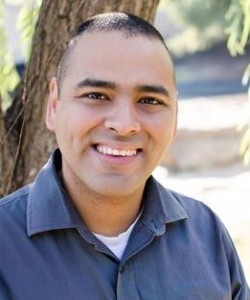
Gama Martinez lives near Dallas and collects weapons in case he ever needs to supply a medieval battalion. He greatly resents when work or other real life things get in the way of writing. Other than writing, he does normal things like run from bulls and attempt to leave the Earth to be a Martian colonist. His first book, Delphi, based on Greek Mythology, will be released Tuesday, May 27.http://www.GamaRayBurst.com

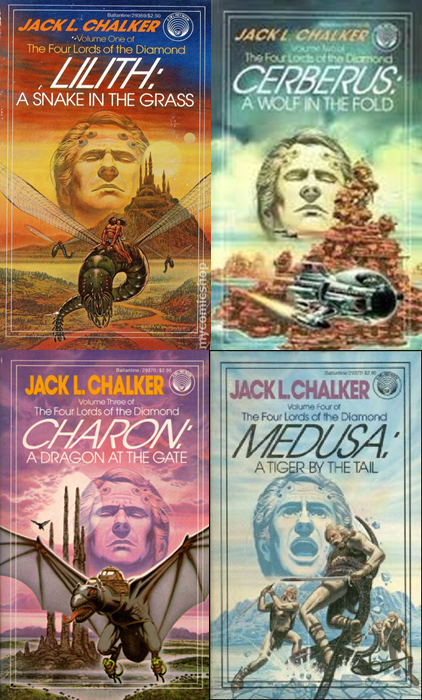 halker
halker East of Toronto, just off Highway 48, you will find a beautiful tree-lined campus right across the road from the famous Miss Scrimmage’s Finishing School for Young Ladies. It is Macdonald Hall, where generations of boys have been educated and prepared for manhood. Named for Sir John A. Macdonald, the Hall, with its ivy-covered stone buildings and beautiful rolling lawns, is the most respected boarding school for boys in all of Canada.
East of Toronto, just off Highway 48, you will find a beautiful tree-lined campus right across the road from the famous Miss Scrimmage’s Finishing School for Young Ladies. It is Macdonald Hall, where generations of boys have been educated and prepared for manhood. Named for Sir John A. Macdonald, the Hall, with its ivy-covered stone buildings and beautiful rolling lawns, is the most respected boarding school for boys in all of Canada.